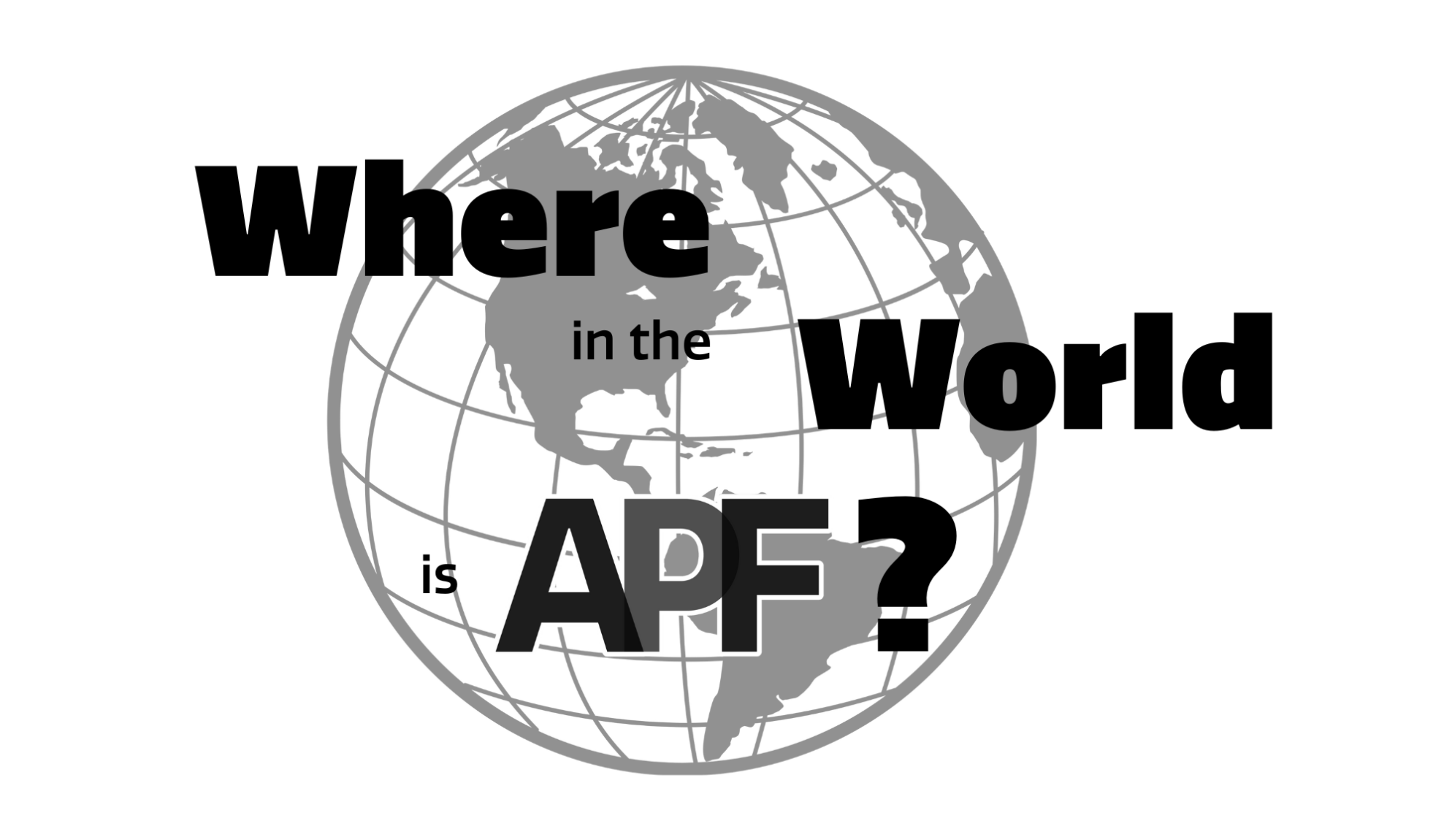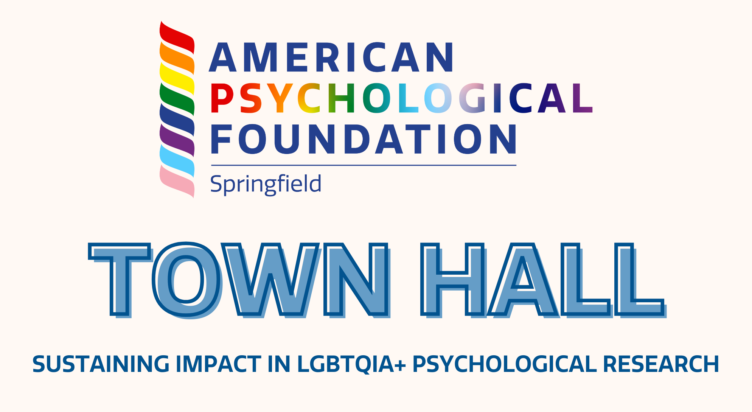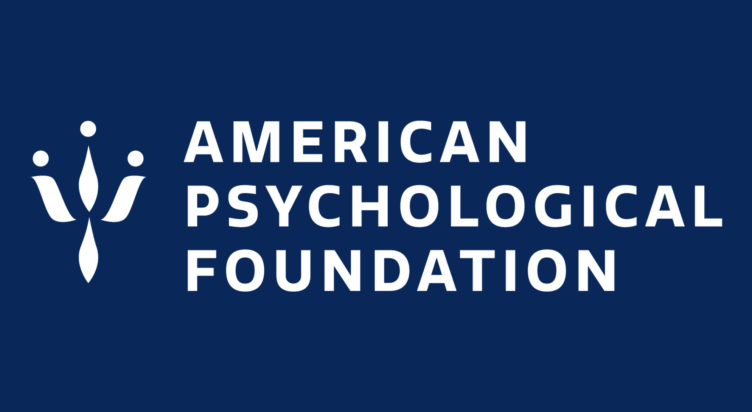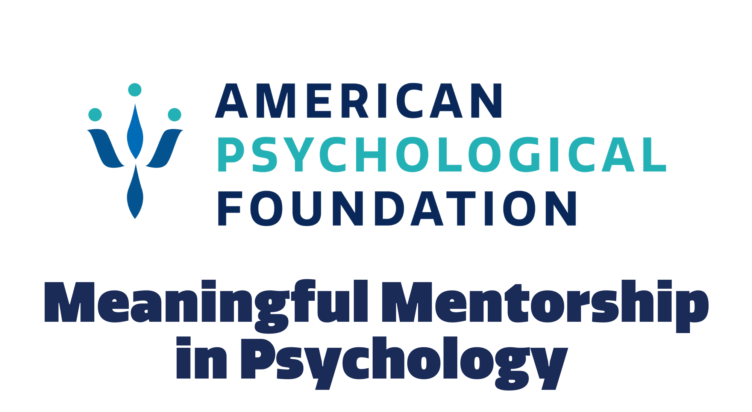Where in the World is APF with Joonwoo Lee


Welcome to “Where in the World is APF”, our recipient highlight series where we catch up with our grant, scholarship, and award recipients all over the world!
Today, we’re speaking with Joonwoo Lee, who received the 2023 Roy Scrivner Memorial Research Grant for the project, “Transgender and Nonbinary People’s Experience of Relational Trauma with Parental Figures.”
Can you give us an update on your career and research since being awarded the Roy Scrivner Memorial Research Grant in 2023?
Since receiving APF funding, I have become a doctoral candidate in counseling psychology at the University of Wisconsin-Madison. I’m currently applying for clinical residencies for my final year of training, with the goal of becoming a researcher in an academic or medical setting. The research funded by APF has been a significant part of my growth as a researcher, and I am now in the final stages of developing a grounded theory on transgender and nonbinary (TNB) individuals’ experiences of parental relational trauma, its inter- and intrapersonal impacts, and the sources and processes of healing. I look forward to defending this research as part of my doctoral dissertation in April 2025. Receiving the Roy Scrivner grant from APF allowed me to progress with my research agenda, and this has opened up wonderful opportunities to collaborate with other researchers. I’ve been fortunate to be mentored by Dr. Stephanie Budge on the first open clinical trial for developing culturally sensitive therapy for TNB people of color, based on the radical healing framework and using Community-Based Participatory Research methods. Together with Dr. Budge and Dr. Heather Kim from Massachusetts General Hospital, we have co-developed the Companionship Model—a gender-affirming assessment for TNB youths that prioritizes access to resources. Disseminating this model by training psychologists both domestically and internationally has been incredibly rewarding. Additionally, I’m currently collaborating with Dr. Jillian Scheer from the University of Rhode Island on an NIH-funded clinical trial. This experience has provided me with valuable insights into the mechanisms of change in trauma-focused therapy for sexual and gender minorities and adapting expressive writing for those who have experienced trauma.
In what aspects has your APF-funded research impacted your career as a researcher and your contributions to the field of gender-affirming psychology?
It allowed me to conduct research on a topic that speaks true to my heart and my community. I gained nuanced insights into how transgender and nonbinary individuals experience relational trauma with parental figures and the paths they take to heal. This has helped me develop emerging expertise in the field and shape future research plans to create evidence-based therapies for those affected by such trauma.
Importantly, I developed a meaningful research partnership and friendship with my collaborator, Dr. Sebastian Barr, who has been an incredibly thoughtful research partner, friend, and mentor. Together, we have been dedicated to making the research process relationship centered for participants. Engaging deeply with our community’s experiences through this research has been truly life changing.
Have you received subsequent funding, awards or other significant accomplishments since receiving your APF grant?
Since receiving the APF grant, I have been honored with several awards and additional funding. These include the Transgender Research Award, the Distinguished Student Contribution Award, and the Malyon Smith Scholarship Research Award—all recognizing the clinical and research implications of the research conducted with the Roy Scrivner Award. The experience of securing the APF grant enhanced my self-efficacy in applying for and obtaining further grants for additional projects. For example, I obtained additional grants that allowed me to travel to South Korea to conduct a public roundtable with over 90 participants, including medical doctors, lawyers, psychologists, trans and nonbinary people, and allies, to discuss barriers to applying the WPATH Standards of Care in South Korea.
How did, or how will, your APF-funded research positively influence or make significant contributions to transgender & gender-diverse communities?
I hope that our grounded theory on trans and nonbinary individuals’ experiences of parental relational trauma will empower those who have faced these challenges. By articulating and validating their experiences, I aim to help them feel seen and appreciated for their unique strengths. Our findings show that rather than TNB identities generating familial conflict, these identities enabled individuals to 1) build a self-definition different from what they learned from their family of origin; 2) access communities that prioritize self-awareness and healthy boundaries; and 3) develop a critical consciousness of oppressive relationships. This, in turn, enabled individuals to recognize pre-existing patterns of parental harm that typically predated their transition. With such self-knowledge and critical consciousness, TNB people were often the first in their families to disrupt intergenerational harm and engage in intergenerational work. While some repaired relationships, others had to choose distancing, therapy, and community connections to heal. I hope this research empowers TNB individuals by highlighting their resilience and capacity for transformative change.
How have you used the outcomes, or how do you plan to use the outcomes from your APF-funded research to inform future projects or initiatives?
Building upon this research, I aim to develop Cognitive Processing Therapy (CPT) tailored for trans and nonbinary individuals who have experienced relational trauma with parental figures. In the short term, we have initiated a collaborative zine project as a creative means to disseminate our findings back to the community. Participants will be contributing art or writings reflecting their healing journeys, and a nonbinary artist (Britchida) will be visually illustrateing key findings. This approach bridges the gap between research and community knowledge, making the information accessible and engaging. By involving the community directly, we hope to foster a deeper connection and encourage ongoing dialogue around healing and empowerment.
What inspired your interest in supporting the LGBTQIA+ community through psychology?
There has been a significant gap in understanding and working with relational trauma with parental figures, particularly among transgender and nonbinary individuals. I witnessed so many people who felt that healing from such deep-seated trauma was unattainable, and it highlighted the importance of understanding ways people experience and heal from these traumas so that the community can foster hope that healing from it is indeed possible.
Do you have any words of wisdom for future APF applicants doing similar work in the field?
I want to encourage future APF applicants to believe in their values and the impact of their work. Every researcher needs their first grant to be empowered and to gain self-efficacy. I remember feeling quite daunted by the idea of applying for grants. Receiving the grant helped me grow both professionally and personally. So don’t hesitate to apply for opportunities like the APF grant—even if it feels intimidating. I especially want to tell those who often feel unseen: please consider applying for these grants. Your perspectives and contributions are invaluable, and there are people eager to support you and your work.
Want to contribute to projects like this and create impact with psychology? Donate to APF today!
Topics: LGBTQIA+ Mental Health Where In The World Is APF
Discover More

APF’s Springfield Town Hall | Sustaining Impact in LGBTQIA+ Psychological Research
American Psychological Foundation (APF)’s second annual Springfield Town Hall brought together psychologists, researchers, students, mental health professionals, and allies to explore the current state of LGBTQIA+ psychological research, inclusive and affirming research practices, and how to sustain both the work itself and the people doing it.

American Psychological Foundation Announces Two New Direct Action Visionary Grant Awardees
American Psychological Foundation Announces Two New Direct Action Visionary Grant AwardeesPrograms to support trans and nonbinary young people as well as trauma intervention for parents …

Meaningful Mentorship in Psychology with APF’s Early Career Psychologist (ECP) Committee Chairs
January is National Mentoring Month, and at APF, we know that mentorship is essential in shaping the next generation of researchers and psychologists. Supporting students …
